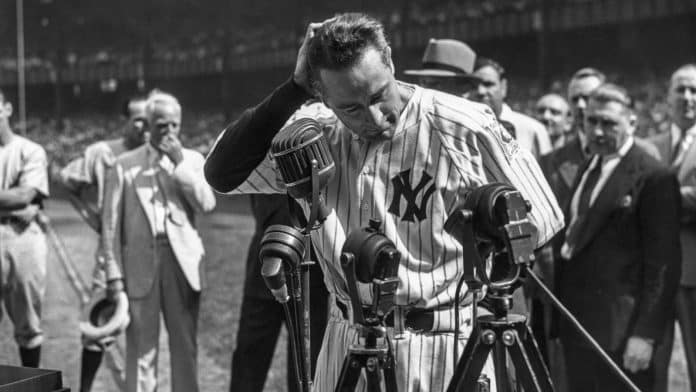Lou Gehrig famously said upon his retirement that he considered himself the luckiest man on the face of the Earth.
This was despite the fact that he had been diagnosed with ALS, a disease that ended his career and would cut his life tragically short. Despite this he was able to become a truly legendary baseball player and an all-time New York Yankees great. Here is a look back at the career of the man known as the Iron Horse.
1 of 22
Gehrig wows as a high school player
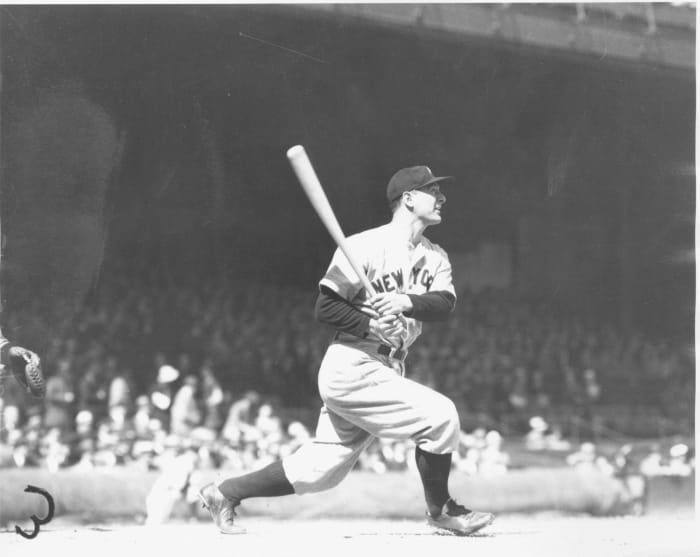
The first time Gehrig made a splash playing baseball he was still only a 17-year-old playing for the New York School of Commerce. His squad was in Chicago in 1920 to play a local team in what is now Wrigley Field. In the ninth inning, Gehrig mashed a game-winning grand slam that reportedly left the ballpark. This was enough to get Gehrig’s name in the news.
Gehrig goes to college…to play football
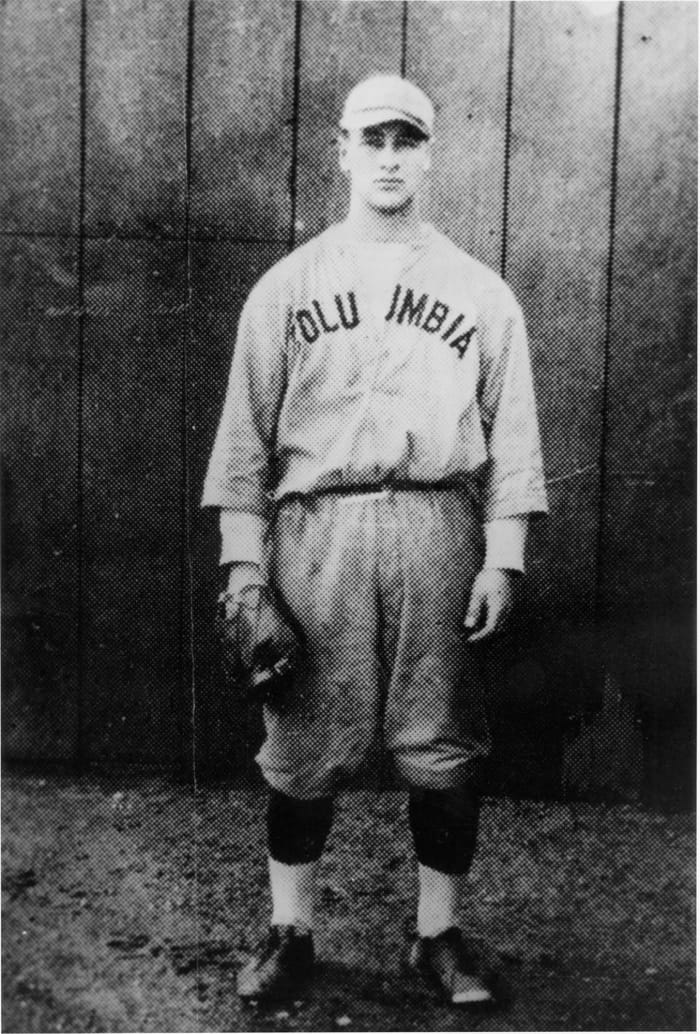
Columbia/Collegiate Images/Getty Images
After high school, Gehrig stayed in New York to go to Columbia University. However, he was there to play football. Then, New York Giants manager John McGraw suggested he play pro baseball under a pseudonym to maintain his eligibility. He was found out, though, and Gehrig was banned from sports for his freshman year.
3 of 22
Gehrig dominates as a collegiate pitcher
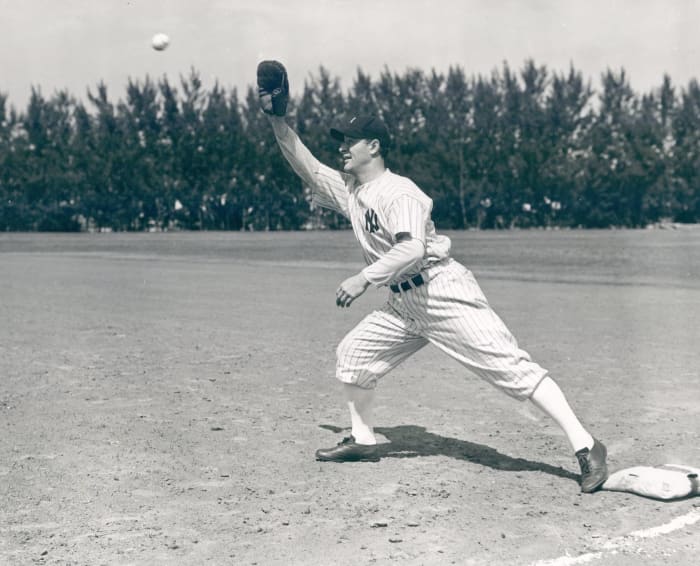
William Greene/Sports Studio Photos/Getty Images
The ban would eventually be lifted, and Gehrig would take the field for Columbia. He played first base, but like a lot of early baseball players he also pitched a bit. In fact, one time he struck out 17 batters in a game. And yet it was his bat that drew most of the attention.
4 of 22
The New York Yankees sign Gehrig
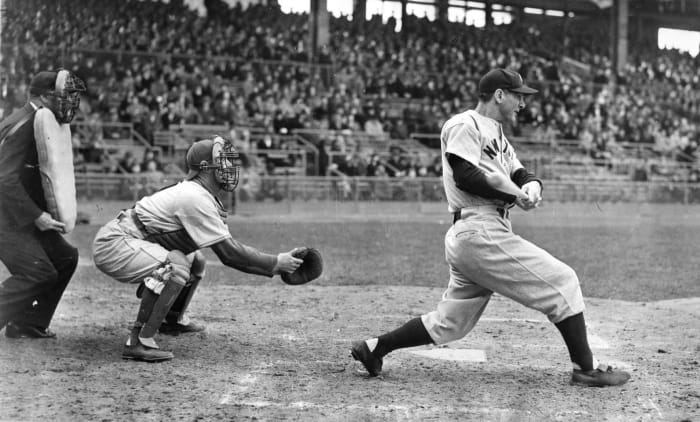
Mark Rucker/Transcendental Graphics, Getty Images
One of the guys who loved Gehrig’s left-handed swing was Yankees scout Paul Krichell. He was quick to offer the lifelong New Yorker a contract, and with that Gehrig was a Yankee. He signed April 20, 1923, and then went down to the minors to play for the Hartford Senators, the only team outside of his native New York he ever played for. The potential was obvious, as he hit 61 homers in 193 minor league games over 1923 and 1924.
5 of 22
Gehrig makes his major league debut
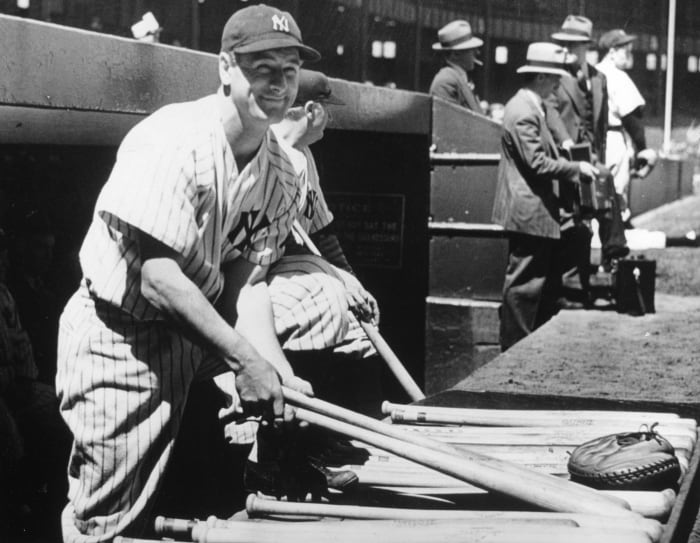
Mark Rucker/Transcendental Graphics, Getty Images
The first time Gehrig donned Yankees pinstripes came later in 1923, when he served as a pinch hitter on June 15. He was only 19 at the time, and he wore No. 4 simply for the fact he was hitting fourth in the lineup. That number would go on to eventually be retired in his honor.
6 of 22
Gehrig excels as a pinch hitter
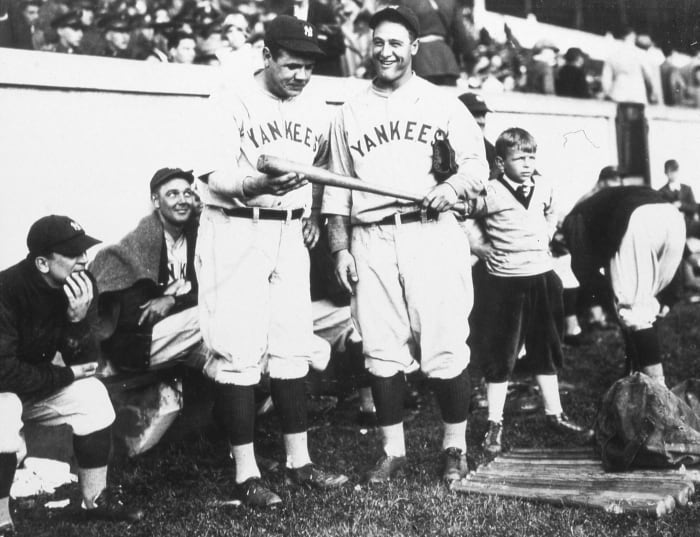
Mark Rucker/Transcendental Graphics, Getty Images
For the beginning of his career, the Iron Horse mostly was a pinch hitter. However, his bat served well in that role. He was still young, and so it took a little while for him to get a regular position. Of course once he got one, it took a long time for him to let it go.
7 of 22
Wally Pipp sits, and a streak begins
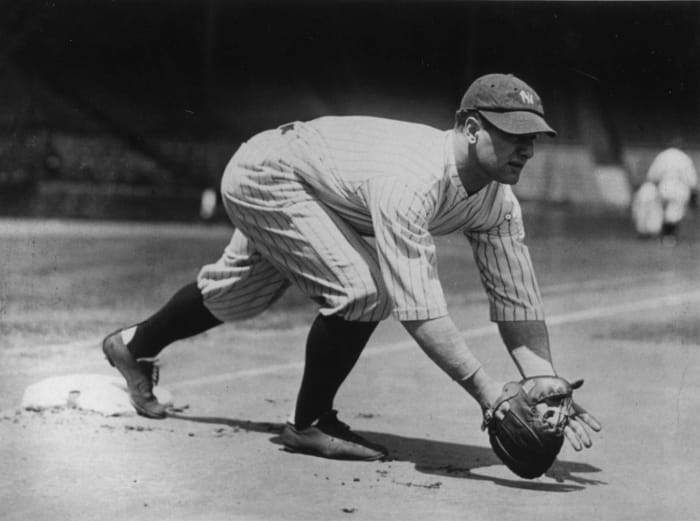
Mark Rucker/Transcendental Graphics, Getty Images
Pipp had been the de facto first baseman for the Yankees, but he started the 1925 season slow. Trying to give his team a boost, manager Miller Huggins made a few changes to the lineup. That included putting Gehrig in for Pipp. This was June 2, 1925. Gehrig would proceed to play in 2,130 consecutive games. Losing a role, in sports or life in general, has come to be known as “being Wally Pipp-ed.”
8 of 22
Gehrig breaks out in 1926
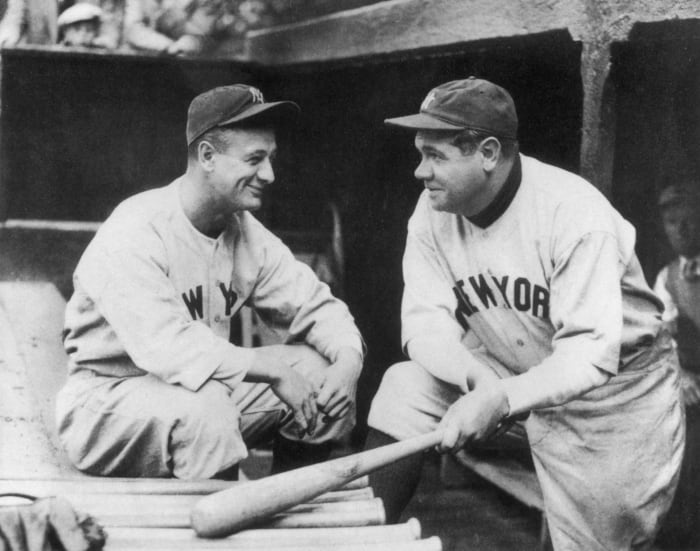
MPI/Getty Images
Safely ensconced in a starting role now, Gehrig was able to show the full array of his skills. In a breakout campaign, the 23-year-old batted .313 with 16 homers, 112 RBI and a whopping 20 triples. Combined with the bat of Babe Ruth, the Yankees were ready to dominate baseball for the next decade.
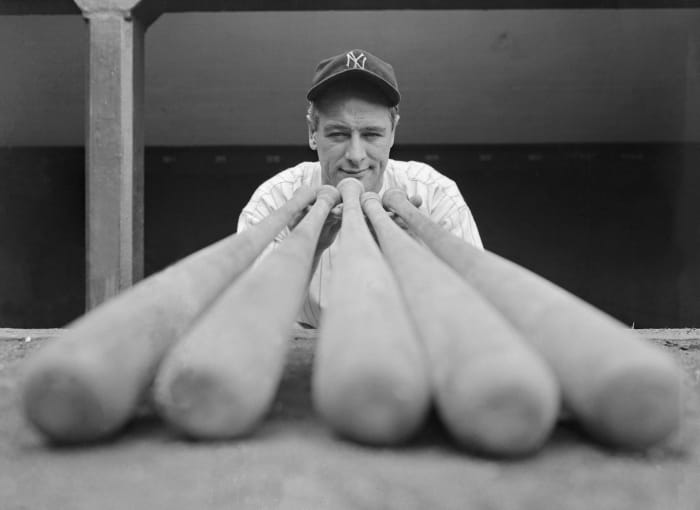
Bettmann/Getty Images
The Yankees of 1927 were known as the “Murderer’s Row” because of how much skill they had in their lineup. Ruth hit 60 homers that year, a new MLB record, but he didn’t win AL MVP. That award actually went to Gehrig. The Iron Horse put up truly spectacular numbers. He hit .373 with 45 homers and a then-record 175 RBI. New York also won the World Series, the first of several with Gehrig in the lineup.
10 of 22
The four-homer game
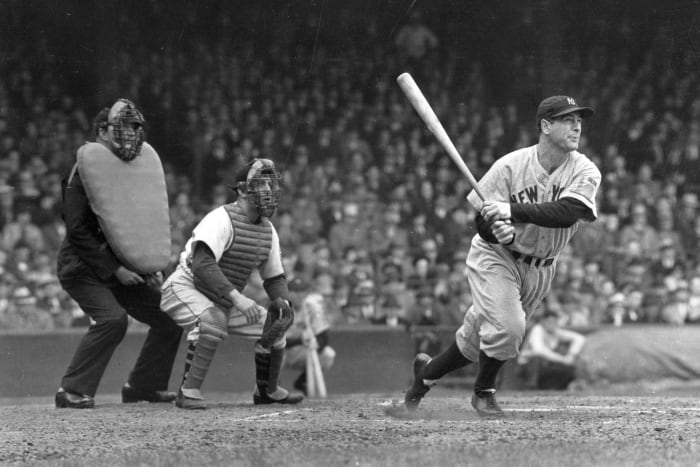
Mark Rucker/Transcendental Graphics, Getty Images
New York won another World series in 1928, but it’s 1932 when Gehrig had his next big singular accomplishment. Against the Philadelphia Athletics, Gehrig mashed four dingers. He was the first player to do so since the turn of the century, and he’s still only one of 18 players to ever pull off the feat.
11 of 22
Gehrig becomes baseball’s iron man
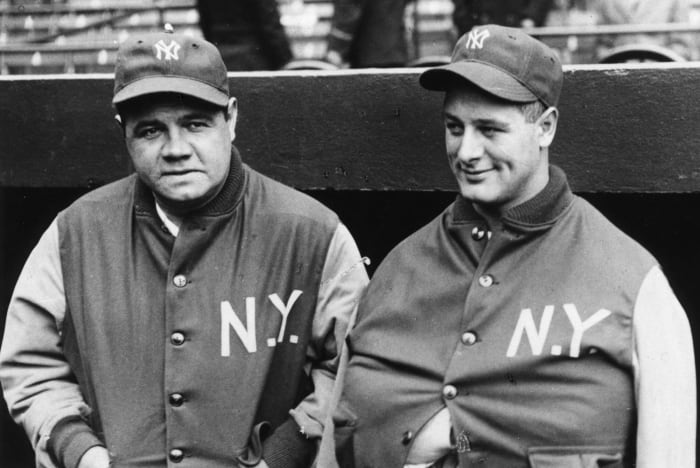
Mark Rucker/Transcendental Graphics, Getty Images
The next season, Gehrig set a new record. This time it was for taking the field game in and game out. On Aug. 17, 1933, Gehrig played his 1,308th game in a row, a new record. Of course, he would go on to play another 800 games or so without taking a day off.
12 of 22
A triple crown season
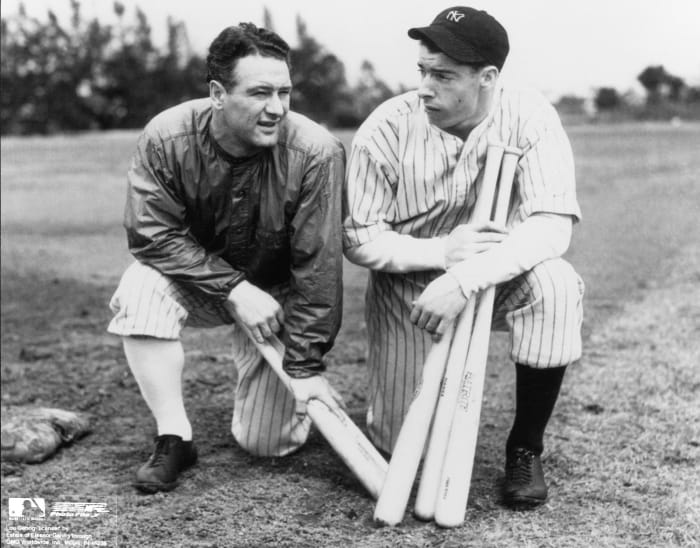
Photo File/MLB Photos via Getty Images
While hitting for the triple crown, i.e. leading the league in batting average, home runs and RBI, was more common back in the day, it was still a rare and impressive thing to do. There have been only 17 triple crown seasons in MLB history, and Gehrig has one of those. In 1934 he hit .363 with 49 homers and 165 RBI.
13 of 22
Gehrig wins another MVP
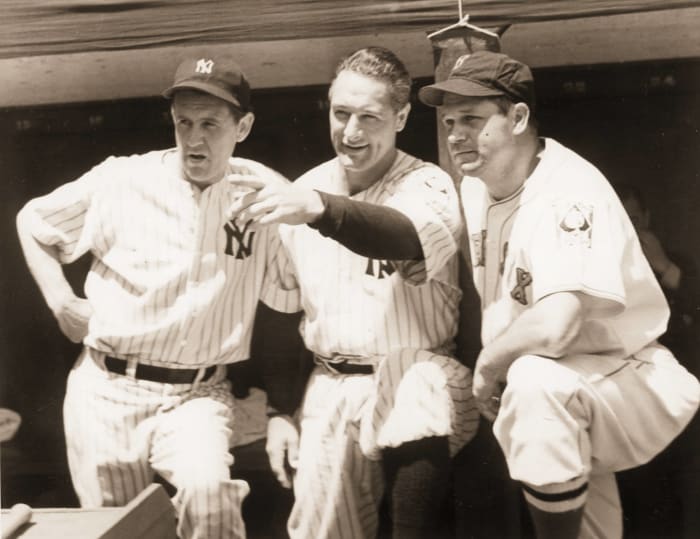
Mark Rucker/Transcendental Graphics, Getty Images
In 1936 Gehrig apparently auditioned for the role of Tarzan. It didn’t go well. On the other hand, the Yankees won another World Series, and Gehrig won his second and final MVP award. It was also the fifth and final time he collected over 400 total bases in a season, a rare feat.
14 of 22
Gehrig has one final great year
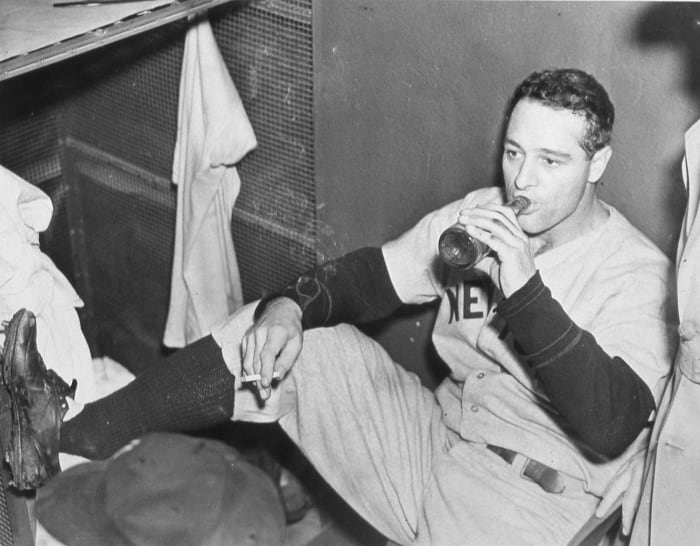
Mark Rucker/Transcendental Graphics/Getty Images
In 1937 things were business as usual for the Yankees — and for Gehrig. The team won the World Series, and Gehrig hit .351 with a hearty .643 slugging percentage and 37 homers. Nothing seemed amiss, but it would be unfortunately the last time the Iron Horse was truly himself on the field for a full season.
15 of 22
One more World Series ring
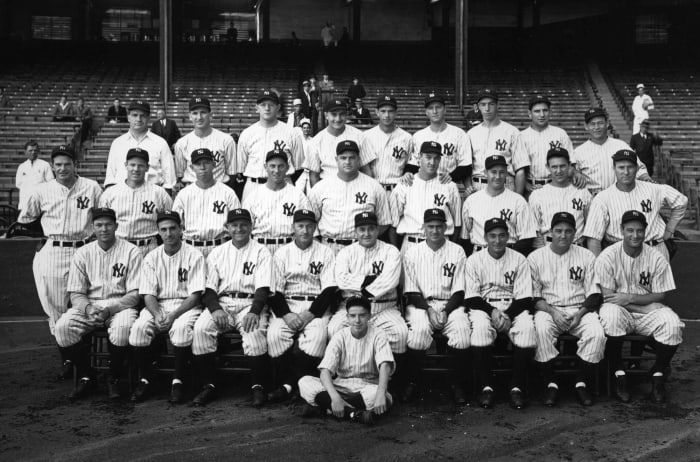
Mark Rucker/Transcendental Graphics, Getty Images
Let’s start with the good thing that happened in 1938 for Gehrig. The Yankees won their third straight World Series. It was the sixth time Gehrig won a title in his career. He still contributed on the field, but things were starting to head in a troubling direction.
16 of 22
The skills begin to decline
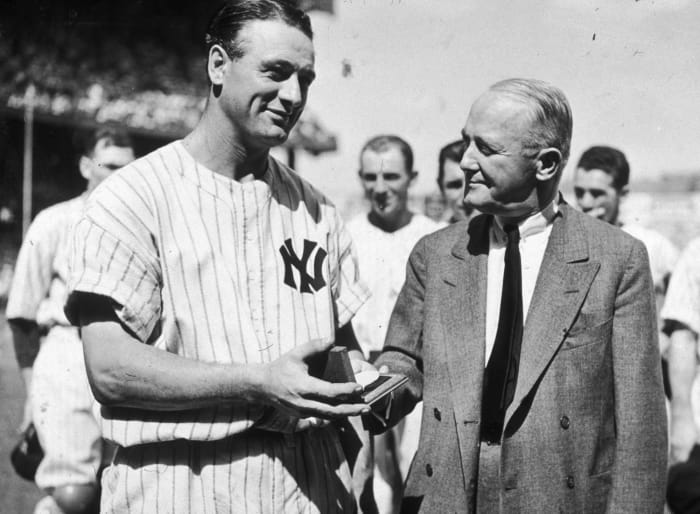
New York Times Co./Getty Images
Gehrig’s numbers in 1938 would have been a dream for many players. He hit .295 with 29 homers and 114 RBI. However, this was the first time he had hit below .300 since 1925, and it was his first season with fewer than 30 homers since 1928. More distressingly, Gehrig reported midseason that he was feeling really tired, and he couldn’t quite place why. In the World Series he went 4-for-14, and all of his hits were singles.
17 of 22
Gehrig benches himself
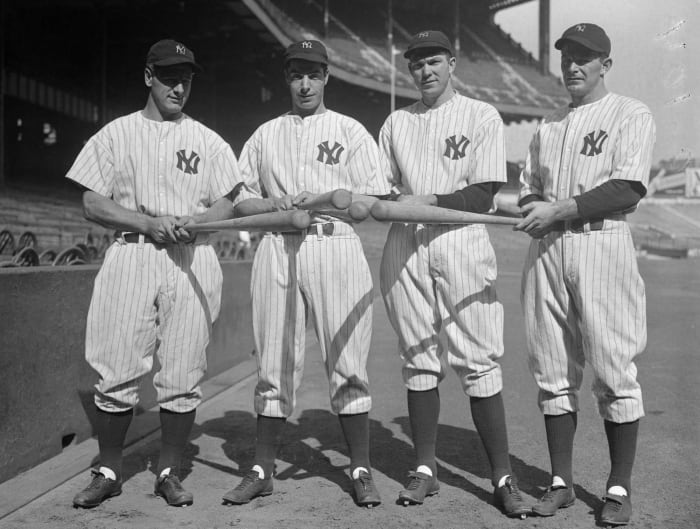
Bettmann/Getty Images
In his 2,130th consecutive game, Gehrig went hitless. He wasn’t feeling like himself. Despite the streak, the Iron Horse, who earned that nickname due to always being ready to take the field, told his manager, Joe McCarthy, he was taking himself out of the lineup prior to the Yankees’ next game. On May 2, Gehrig sat against the Tigers, and Babe Dahlgren was given the start. It was the first time in 14 seasons Gehrig hadn’t played.
18 of 22
Gehrig receives his diagnosis
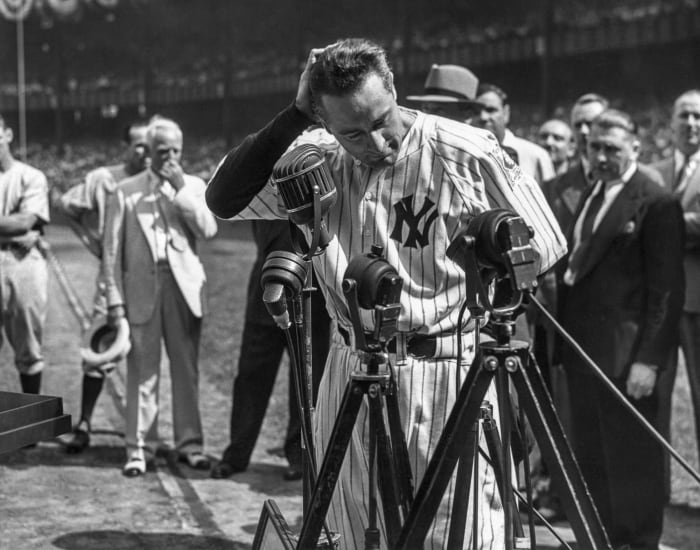
Stanley Weston/Getty Images
Gehrig knew something was wrong, as his power was leaving him. Fortunately for him, Charles Mayo, as in the guy from the famed Mayo Clinic, was a fan and advised Gehrig to visit his facility as soon as possible. Gehrig left his team in Chicago in 1939 to get tested. After six days of testing, and on his 36th birthday, Gehrig was diagnosed with amyotrophic lateral sclerosis, or ALS. To this day, it’s colloquially known as Lou Gehrig’s disease.
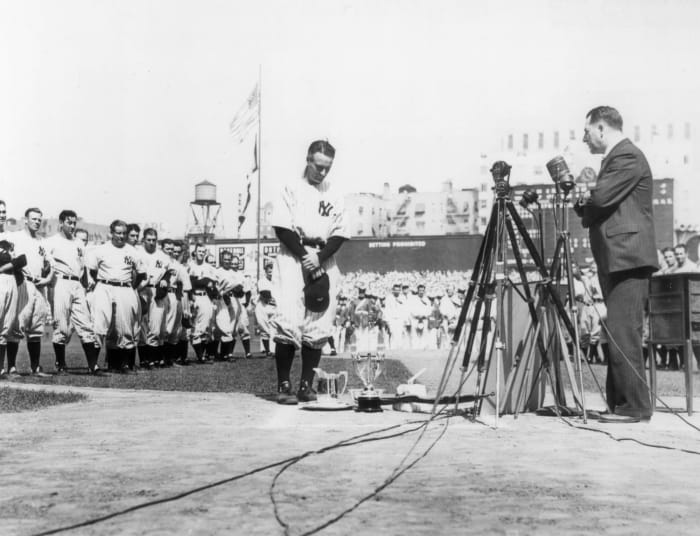
Mark Rucker/Transcendental Graphics/Getty Images
The writing was on the wall. Gehrig’s diagnosis was made public on June 19, 1939, and a couple of days later his retirement was officially announced. The Yankees wanted more than just a simple announcement though. On July 4, the independence of America was set aside for “Lou Gehrig Appreciation Day,” when Gehrig delivered his famed speech, perhaps the most iconic in all of sports.
20 of 22
The Hall of Fame gives Gehrig a special honor
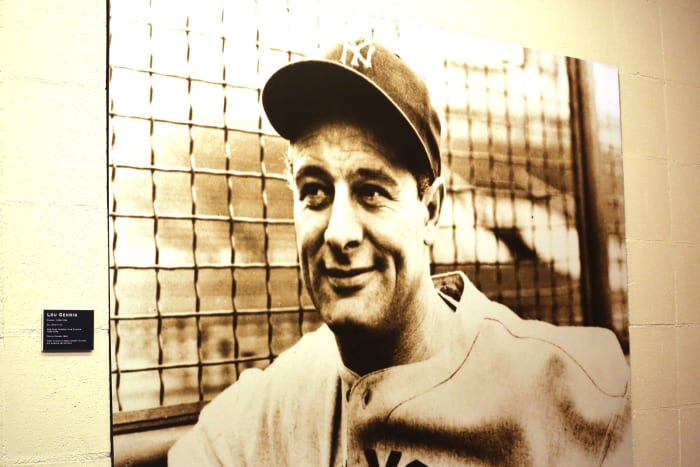
Walter McBride/WireImage
Normally, a player has to be retired for five years before getting into the Hall of Fame. However, given the circumstances, the Hall made an exception for Gehrig. That winter, the Baseball Writers’ Association met and elected Gehrig into the Hall of Fame effective immediately. He would not have to wait five years. That was fortunate, as sadly Gehrig would not live another five years. On June 2, 1941, Gehrig passed away at the age of 37.
21 of 22
The records and accomplishments
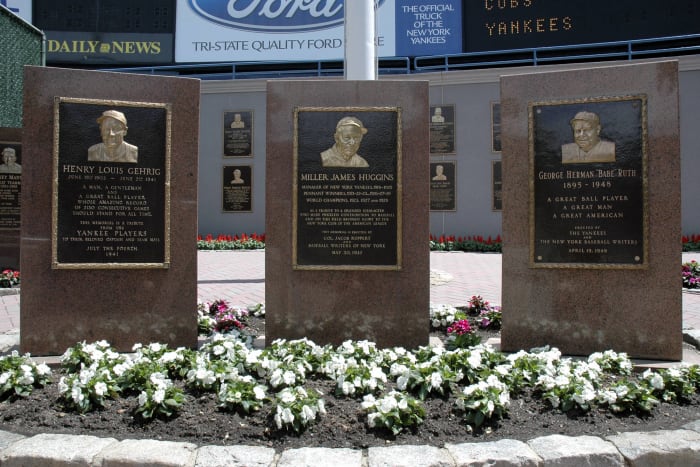
Diamond Images/Getty Images
Gehrig didn’t quite hit the 500 homer mark in his career — he finished with 493 — but he was still an all-time hitter. His .447 OBP and .632 slugging percentage are both top numbers for first basemen. Additionally, he and Stan Musial are the only two players in MLB history with at least 450 homers, 150 triples and 500 doubles. Gehrig made seven All-Star teams, and he also happened to be the first athlete to appear on a Wheaties box. Take that, Michael Jordan!
22 of 22
The Lou Gehrig Memorial Award
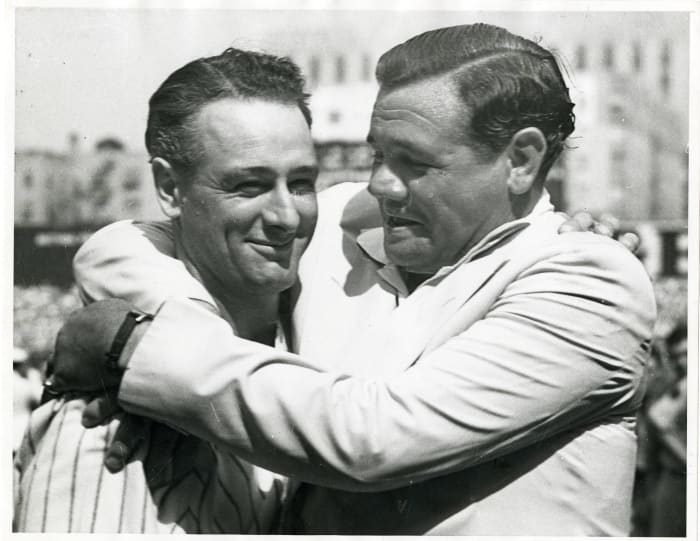
SOURCE: yardbarker.com
